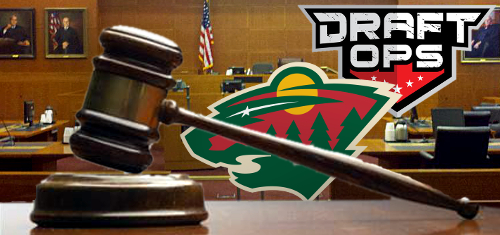 A daily fantasy sports operator has failed in its attempt to convince a federal court that its business model is agin’ the law.
A daily fantasy sports operator has failed in its attempt to convince a federal court that its business model is agin’ the law.
In September 2015, DFS operator Emil Interactive Games, which operated under the DraftOps brand, inked a marketing deal with the National Hockey League’s Minnesota Wild franchise. The deal gave DraftOps certain advertising privileges and use of the Wild’s trademarks for a period of one year, for which Emil agreed to pay $1.1m, with late fees and interest charged at 1.5%.
The Nevada-based Emil Interactive was dissolved in October 2015, the same month Nevada’s Attorney General declared DFS to be a gambling product that required a gaming license. The company later reincorporated in Delaware, but DraftOps suspended operations shortly thereafter.
As a result, Emil never made any payments to the Wild, leading the Wild to sue Emil, its management company Full Boat LLC and Full Boat’s president Ronald Doumani for breach of contract.
Emil responded with a novel defense, using the ongoing debate around DFS’ legality to claim that DFS was illegal under Minnesota’s laws against sports betting, so the contract with the Wild was null and void.
Doumani’s self-serving legal gambit left DFS supporters aghast, creating fears that the case could set legal precedent that would lead to even more lawsuits against other DFS operators.
In a ruling handed down this week, US District Court Judge Wilhelmina Wright opted against making any definitive statement as to DFS’ legality, saying that the matter at hand “pertains to sponsorship and advertising, not gambling.” Wright says the legality of DFS in Minnesota “is not relevant to this dispute.”
Wright rejected the Wild’s efforts to force Emil to pay the team’s legal costs based on the team’s assertion that Emil was purposely misstating the law and the facts of the case to achieve its legal aims. Wright says Emil’s “theory regarding the legal status of DFS in Minnesota is at least colorable.”
The Wild had argued that Minnesota courts had never applied their sports betting laws to DFS, but Wright noted that “the absence of legal precedent does not render a contention implausible, let alone sanctionable.”
Wright also rejected the Wild’s efforts to “pierce the corporate veil,” saying the team failed to provide sufficient evidence that Full Boat and Doumani were responsible for honoring Emil’s contract.
However, Wright rejected Emil’s bid to dismiss the Wild’s lawsuit against the company, saying Emil “have not demonstrated that dismissal is appropriate based on its illegality theory” and the team had “sufficiently pleaded each element of an account-stated claim.”